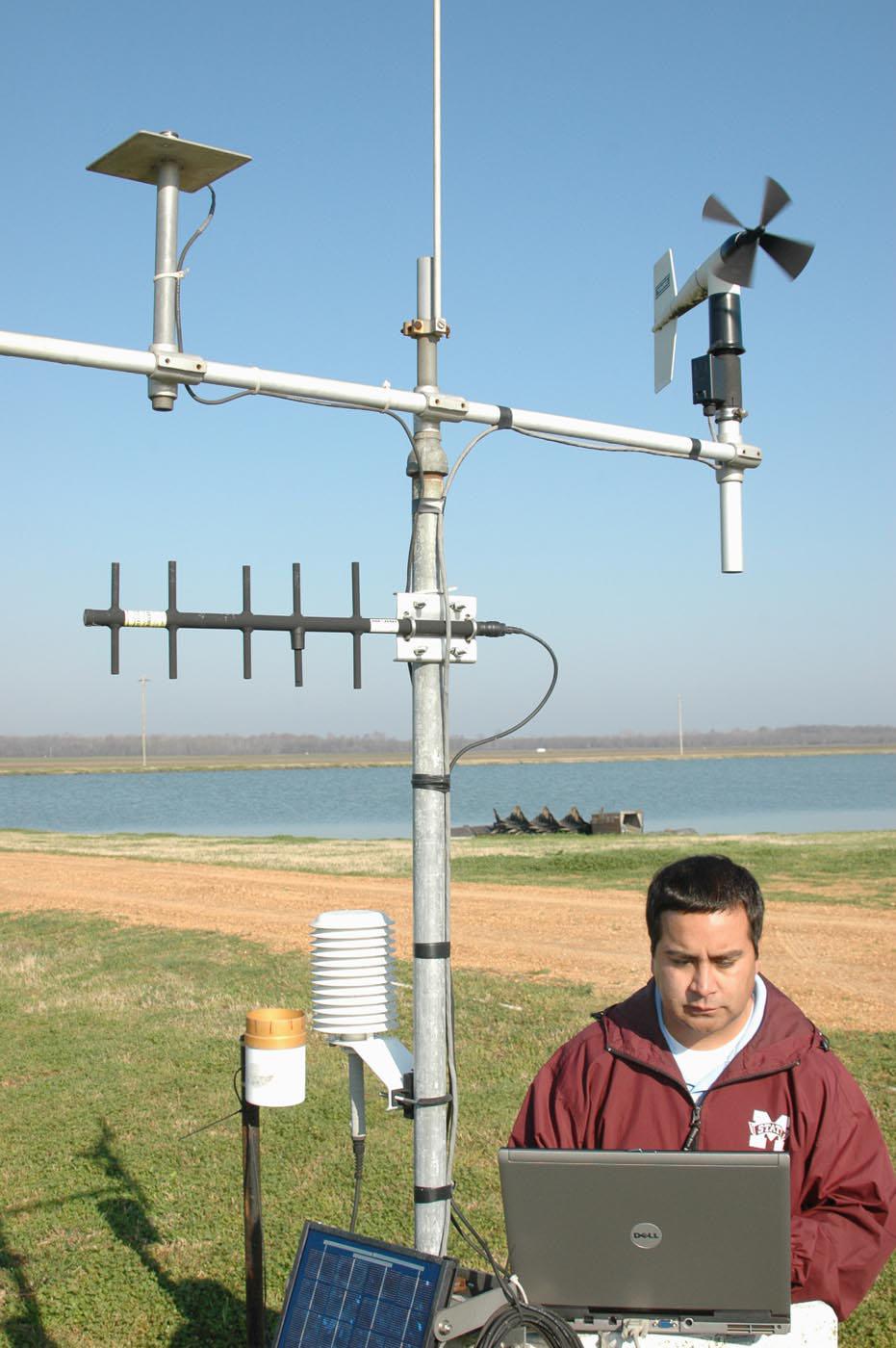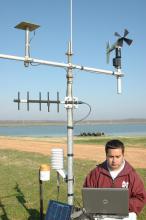Information Possibly Outdated
The information presented on this page was originally released on March 20, 2008. It may not be outdated, but please search our site for more current information. If you plan to quote or reference this information in a publication, please check with the Extension specialist or author before proceeding.
Catfish producers receive $8.1 million for '06 losses
By Robert H. Wells
Delta Research and Extension Center
STONEVILLE -- The distressed Mississippi catfish industry received a small boost in January as state producers were granted $8.1 million in disaster assistance for losses sustained in the hot summer of 2006.
“By using data collected from national and state statistic services, we were able to help Mississippi catfish producers make a successful temperature-related crop loss claim,” said Jim Steeby, a Mississippi State University Extension Service catfish specialist based in Belzoni. “With catfish production costs at record levels, a lot of producers can use this assistance to pay off production loans.”
Steeby helped producers secure the assistance at the request of the Mississippi Department of Agriculture and Commerce. He compiled feed and price data collected by the U.S. Department of Agriculture-National Agriculture Statistical Service and pond water temperature data collected by the Delta Agriculture Weather Center in Stoneville.
The catfish specialist used the data to show that the state's catfish production decreased in 2006 when pond water temperature exceeded 90 degrees for 35 to 40 consecutive days.
“This confirmed statements by catfish producers that heat-related production problems had occurred,” Steeby said. “Then, using data on the market price of fish for the period, I was able to assign a value to the estimated heat-related production loss.”
Steeby said smaller catfish farming operations received about $10,000 in assistance, and many others received between $20,000 and $40,000. Mississippi has about 350 catfish farms.
Steve Fratesi, a catfish producer near Leland, said catfish do not feed as well during hot weather when warm waters provide less oxygen than is available with cooler temperatures.
“When they don't feed, we don't make money,” Fratesi said. “Plus, there is the added cost of just trying to keep them alive with extra aeration.”
The catfish producer said it was difficult to maintain high oxygen levels in all of his ponds during the summer of 2006.
“We farm right at 400 acres, and we've got enough equipment to handle the ponds we might have oxygen trouble with on some nights,” Fratesi said. “But we can't handle having 20 ponds so low on oxygen that we have to put backup aeration in. I run out of equipment.”
Fratesi said he used his disaster assistance to offset current production costs that have increased considerably as fuel and feed prices steadily rise and severely threaten the industry's existence.
“Any kind of assistance that will help catfish producers get through these tough times is much appreciated,” Fratesi said. “We are a teetering industry, and this assistance is one of the things that may keep somebody in.”
Steeby said the Delta Agriculture Weather Center was instrumental in securing disaster assistance by providing detailed water temperature data that quantified the extreme weather conditions catfish producers faced in 2006. In addition to providing local pond temperature data, the center allows producers and researchers to calculate the appropriate timing for applications, such as insecticides and defoliants. The center also provides current and archived weather data, including air temperature, soil temperature, relative humidity, precipitation, wind speed and wind direction.
Mark Silva, an Extension associate, oversees the Delta Agriculture Weather Center's weather stations located throughout the Mississippi Delta. The weather center is based at MSU's Delta Research and Extension Center.
“All this data can be accessed by the public through the center's Web site,” Silva said. “All data is offered in 24-hour readings. Hourly data is archived and can be provided at a user's request by contacting the weather center. Catfish pond temperatures are available only by contacting the weather center.”
The Web address for the Delta Agriculture Weather Center is http://www.deltaweather. msstate.edu.



